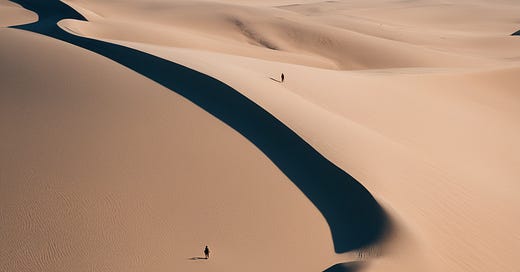The vast majority of human knowledge and discovery has been lost. More than 8 billion people are alive today, which sounds like a lot, and we surely produce a lot of information, especially in the past few years.1 But about 117 billion people have ever lived2, and about half of them walked the Earth in just the last 2000 years. Of those 117 billion, how many were in any position to:
Pursue scientific and creative discovery
Record their findings
Get anyone to take them seriously
Transmit findings and creations down through the ages
It’s staggering. Childhood mortality was nearly 50% until about the past 200 years. Even among those who lived to adulthood, most people’s time was spent on survival: growing and harvesting food, finding water, hunting, gathering, building shelter, surviving weather events.
So, it’s certain that thousands of Einsteins lived and died unrecognized and illiterate, brilliant thoughts extinguished with their minds. Thousands may have tried to speak up but been ignored entirely or persecuted for thinking outside the box (even Galileo dealt with this in progressive-for-its-time Renaissance Italy!). Thousands may have kept their mouths shut, knowing that survival as part of a community meant more than spouting some weird theory that would get them ostracized or killed.
We will never know their names or count their numbers. Da Vinci and Ada Lovelace are the exceptions, not the rule. The inventions we don’t have may matter as much as the ones we do; we just don’t know what we’re missing.
But many humans alive today are in enviably different positions than our ancestors. We are, at most times and in many places, not focused on sheer survival:
Grocery stores have safe and sometimes ample food.
We turn a tap and water comes out.
The global child mortality rate is under 5% (and as low as 0.3% in countries like Iceland, Japan, and Slovenia).
Antibiotics, immunization, and antivirals can vanquish diseases en masse3.
The large majority of humans have shelter (though the quality of shelter varies massively across socioeconomic classes).
Weather forecasting helps us mitigate many disasters.
Moreover, literacy is widespread, and the internet offers a way to share ideas not just in our local town or city, but around the world, so our neighbors can’t shout us down and prevent anyone else from ever hearing us.
Yes, we face challenges, but every day that we are lucky enough to focus beyond survival and spend time creating or pondering or exploring and sharing ideas is an opportunity. When we use that opportunity in gratitude, we honor those who didn’t have it and who we never knew.
“Amount of Data Created Daily (2023).” Exploding Topics, April 3, 2023. https://explodingtopics.com/blog/data-generated-per-day
From 192,000 years ago until now, according to this great article from Our World in Data on Visual Capitalist.
Tuberculosis has killed 1 billion people in just the past two centuries.





Another great piece of writing, which is incredibly 'think' provoking.
I once published some poetry where I wrote the line "every sentence has been spoken" in consideration of the, I now understand to be, circa "117 billion people" to have been alive.
Mark Dolan mentioned in his comment the Data > Information > Knowledge > Wisdom discussion. And your words kind of turn that on its head, doesn't it, to a degree. Most of the Knowledge we have can be argued to have started way-back-when, born in the Wisdom of philosophers, becoming interconnected, through time, language, and varying degrees of perceptive reckoning to become foundational Information, that various scientists, doctors, and inventive people are now able to provide to us as Data connecting pure theory and thought to objective and visible fact. Atoms, as an example.
You are right, we have lost so much "human knowledge and discovery" for all the reasons you articulate. But perhaps we need to rediscover the wisdom that brought us here. Or at least rediscover how those philosophers arrived at their Wisdom, without Data.
Love this, What if? The first person I thought of was Tesla who apparently knew a way to access electricity for free and was squashed by Edison and died penniless. Conspiracy theory? Maybe. Your piece makes one think.